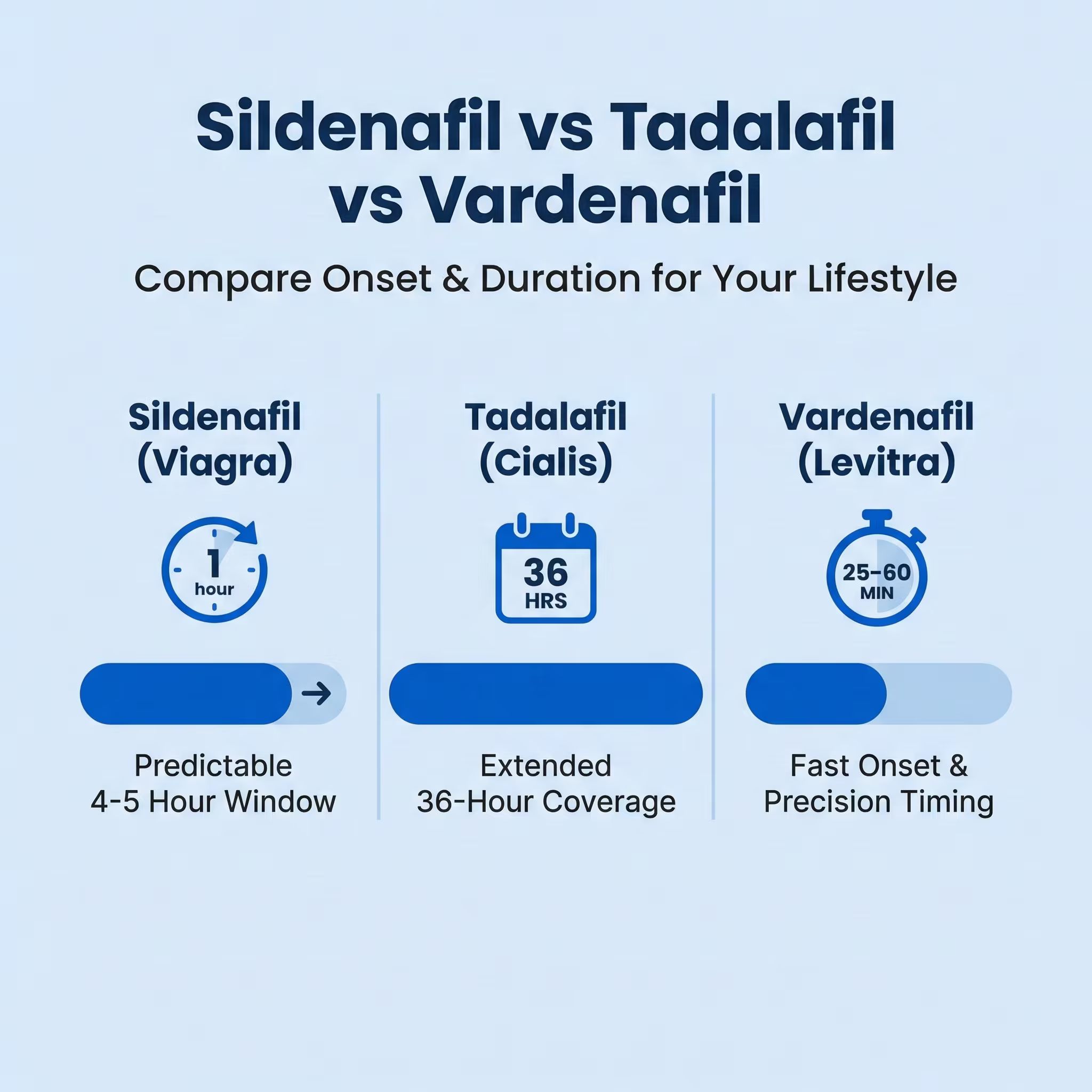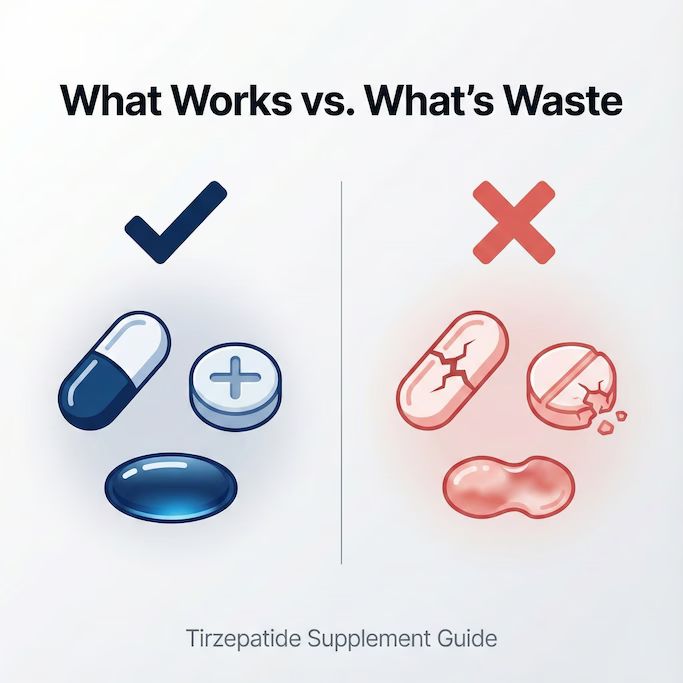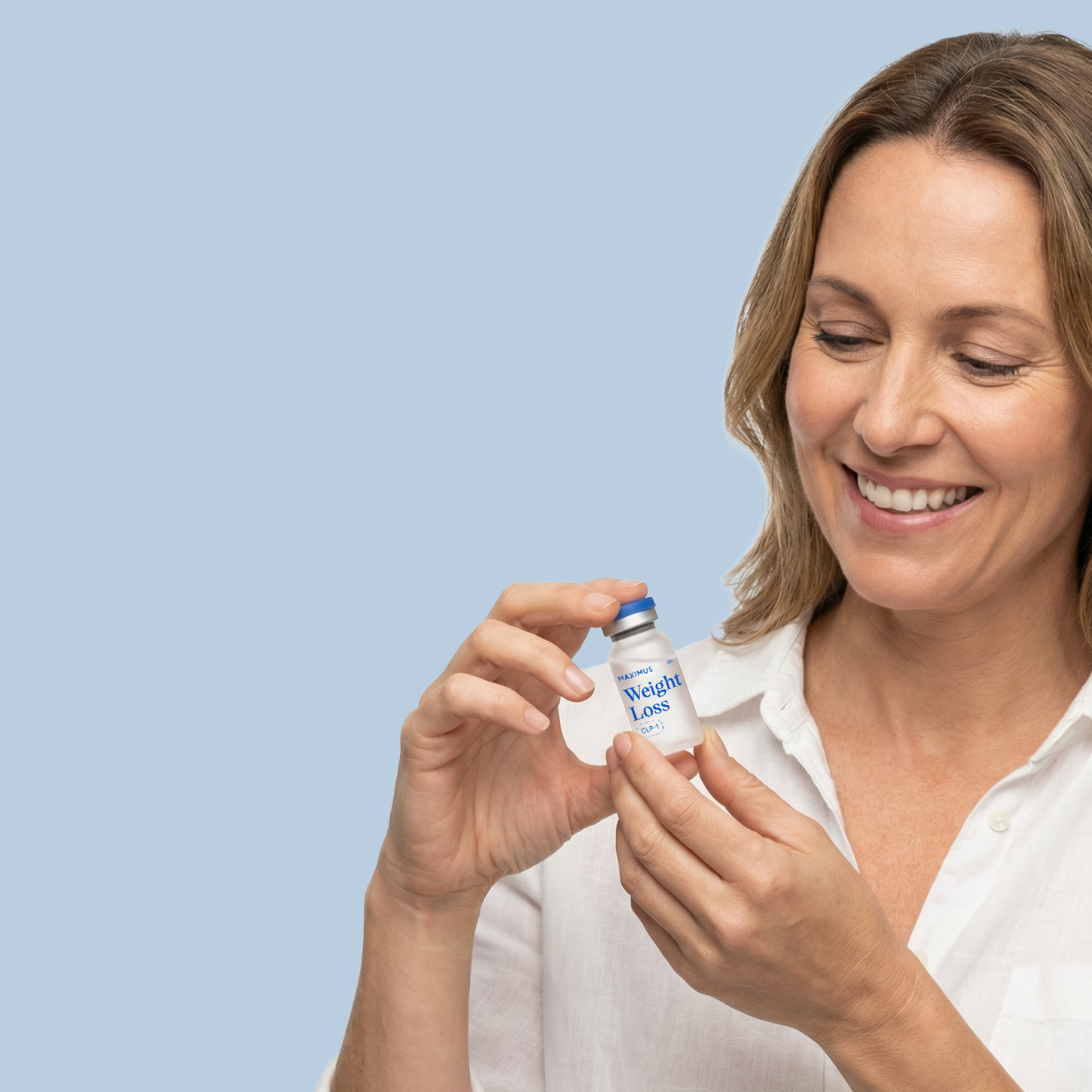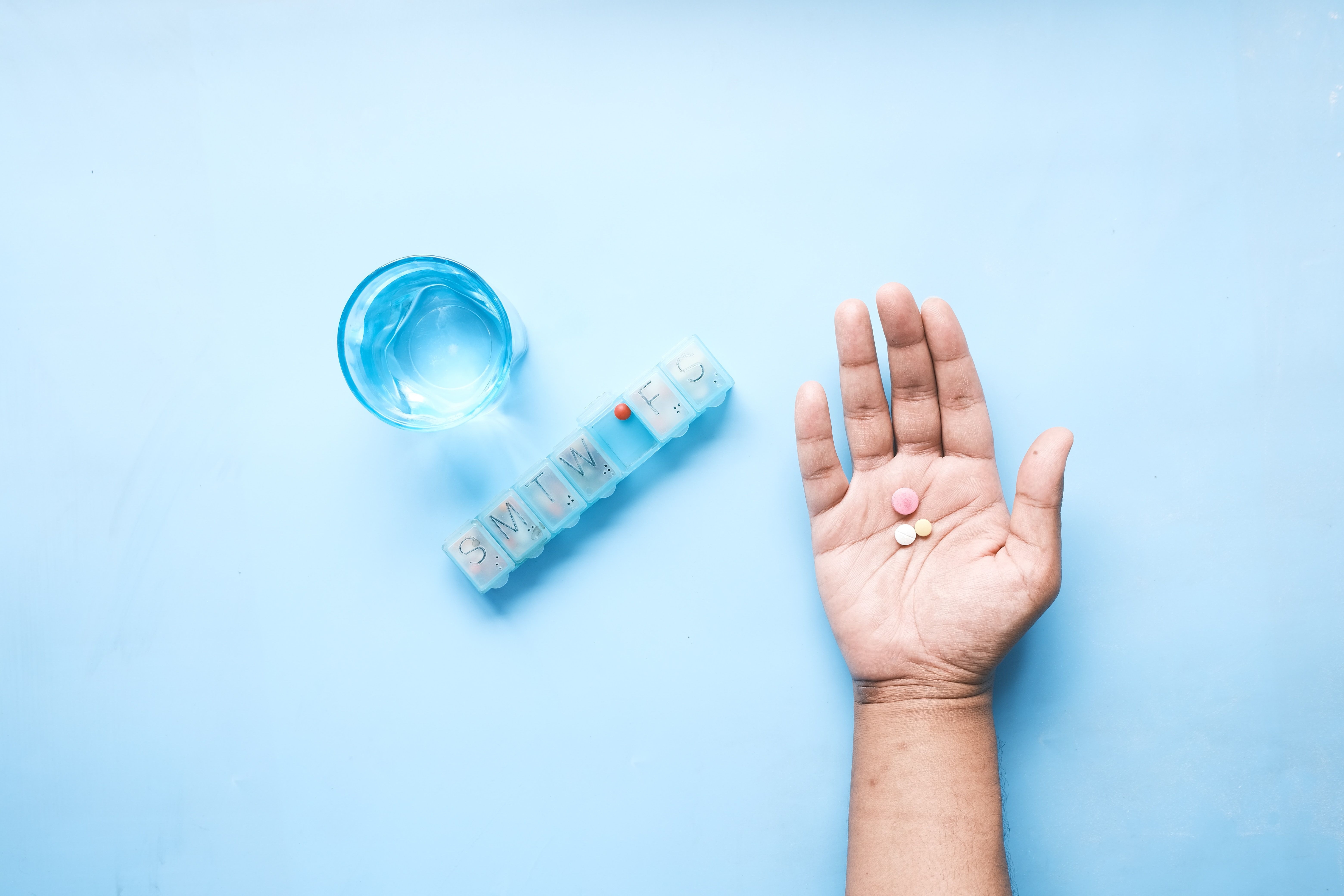Key takeaways:
- Oral testosterone pills are prescribed for men with low testosterone levels to address symptoms like loss of libido and fatigue.
- Modern oral testosterone formulations using testosterone undecanoate have a lower risk of liver toxicity compared to early forms.
- Side effects of oral TRT are described as mild and typically resolve on their own without treatment or discontinuation of the drug. Common side effects include headaches, nausea, upper respiratory infections, and a slight increase in blood pressure.
- While all forms of TRT pose a risk to fertility, oral TRT is considered safer than injections because T levels only become high enough to suppress reproductive hormones for a few hours after ingesting the drug.
If you’re considering testosterone replacement therapy (TRT), there’s a good chance you’re curious about the side effects. Put simply: All forms of TRT carry a risk of side effects, and oral TRT is no different. But oral TRT products have significantly improved and have fewer side effects since the first testosterone pill was released in 1935.
Keep reading to learn about the side effects of oral testosterone undecanoate, and how these side effects compare to the side effects associated with other forms of TRT, like injections. You’ll also learn how oral testosterone works in the body and which product carries the most benefits.
What are oral testosterone pills?
Oral testosterone pills are prescribed to adult men who have low or no testosterone due to certain medical reasons, such as testicle injuries or pituitary disorders. Like other forms of TRT, oral testosterone can be used to treat symptoms like loss of libido, fatigue, trouble getting or maintaining erections, depression, and excess body fat.
Available with a prescription, the medication consists of oral testosterone undecanoate, a synthetic form of the hormone, which helps to restore normal T levels in the blood. There are currently three types of oral TRT pills available: Tlando, Jatenzo, and Kyzatrex.
Are testosterone pills steroids?
Any synthetic form of testosterone is considered a steroid, but prescription oral TRT should not be confused with the steroid products that are often misused by athletes and bodybuilders. The main way they differ is the amount of testosterone used.
According to the National Institute on Drug Abuse, steroids used for non-medical reasons are typically taken at doses that are 10 to 100 times higher than prescribed doses for low testosterone. Some steroid abusers also resort to “stacking” the drugs, which means they’ll take two or more types of anabolic steroids, mix oral or injectable types, and sometimes even take compounds that are intended for veterinary purposes.
Misusing steroids can increase the risk of adverse side effects, which can range in severity, and even be permanent.
Is oral testosterone safe?
Early oral testosterone formulations (such as methyltestosterone) were associated with liver-related concerns with long-term use. More recent approaches are thought to present a reduced likelihood of such issues. Regular monitoring of health markers, including liver enzymes, has not indicated changes typically associated with liver stress.
Side effects of taking testosterone pills include:
Like other forms of TRT, there are side effects associated with testosterone pills, but these have been described as mild and typically resolve on their own without treatment or discontinuation of the drug. In some cases, simply changing the prescribed dose was enough to resolve any reported discomfort.
Side effects of oral TRT may include:
- Headaches
- Upper respiratory tract infections
- High blood pressure
- Nausea
- Diarrhea
- Burping
- Rash
Some of the less common and more rare side effects from testosterone pills include:
- Blood clots
- Decreased sperm count
- Dizziness
- Enlarged prostate
- Bloating
- Insomnia
- Ringing in the ears
- Tingling in the extremities
- Increased risk of heart or blood vessel problems
- Behavioral changes, including thoughts of harming yourself
- Breast growth
Does oral testosterone cause infertility?
While all forms of TRT pose a risk to fertility, some methods present a more severe risk than others. When taken orally, testosterone undecanoate appears to be less detrimental to sperm count and quality than other forms.
In one small study, only 1 of 7 volunteers taking oral testosterone for 10-12 weeks became azoospermic, meaning there was no sperm detected in their semen. The remaining men had either “slightly suppressed” or unaffected sperm counts by the end of the study. The researchers suggested the reason for this “insufficient” risk to fertility was the result of testosterone levels only becoming high enough to suppress reproductive hormones for a few hours after ingesting the drug.
Different brands of oral TRT may also play a role in how extensively your fertility is impacted. While Jatenzo, Tlando, and Kyzatrex all carry the same black box warning that sperm production may be suppressed, only Kyzatrex offers a reproductive toxicology study that shows minimal effects on fertility. Based on in-depth research where animals were given different doses of the drug, the researchers concluded that oral TRT like Kyzatrex poses very little threat to the user’s fertility when prescribed at the right dose. This is a marked difference from other types of TRT, specifically injections, in which TRT has been described as a “promising male contraceptive regimen” due to its ability to maintain sperm suppression.
Are side effects of oral testosterone reversible?
In a narrative review (this is a comprehensive and objective analysis of the existing research on a topic) exploring various TRT options that was conducted in 2022, researchers emphasized that TRT’s effects can easily be reversed upon discontinuation. The review also highlighted some other advantages of oral TRT, including its efficacy, high patient satisfaction levels, and that it’s easy to administer.
Who should start oral testosterone therapy?
Only your doctor will be able to determine if oral TRT is the right choice for you. Some clues that you may be a good candidate for TRT include symptoms like fatigue, low libido, erectile dysfunction, brain fog, and increased body fat. If you are discouraged from trying TRT because of side effects associated with injections, gels, and patches — like infertility, risk of transfer (in the case of topicals), pain, swelling, or skin irritation — oral TRT can be an appealing, hassle-free, and low-risk alternative.
Disclaimer: The contents of this article, including, but not limited to, text, graphics, images, and other information, is for information purposes only and does not constitute medical advice. The information contained herein is not a substitute for and should never be relied upon for professional medical advice. The content is not meant to be complete or exhaustive or to be applicable to any specific individual's medical condition. You should consult a licensed healthcare professional before starting any health protocol and seek the advice of your physician or other medical professional if you have questions or concerns about a medical condition. Always talk to your doctor about the risks and benefits of any treatment. Never disregard or delay seeking professional medical advice or treatment because of something you have read on this site. Maximus does not recommend, endorse, or make any representation about the efficacy, appropriateness, or suitability of any specific test, products, procedures, treatments, services, opinions, healthcare providers or other information contained herein. Maximus is not responsible for, nor will they bear any liability for, the content provided herein or any actions or outcomes resulting from or related to its use.










